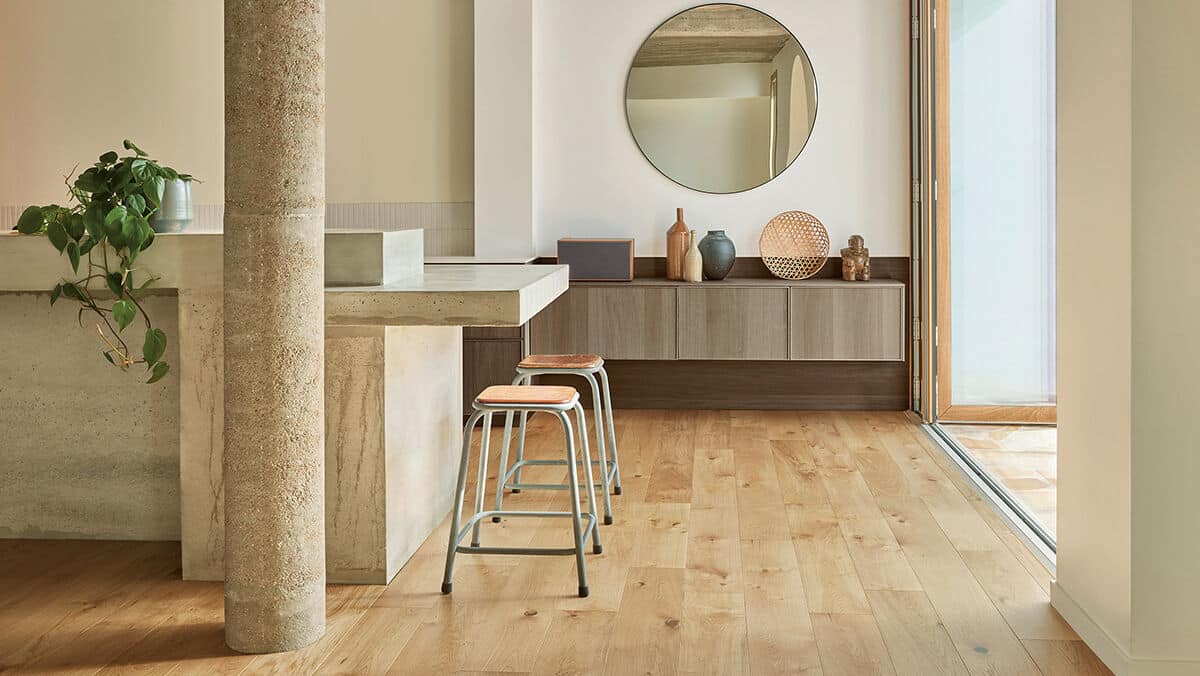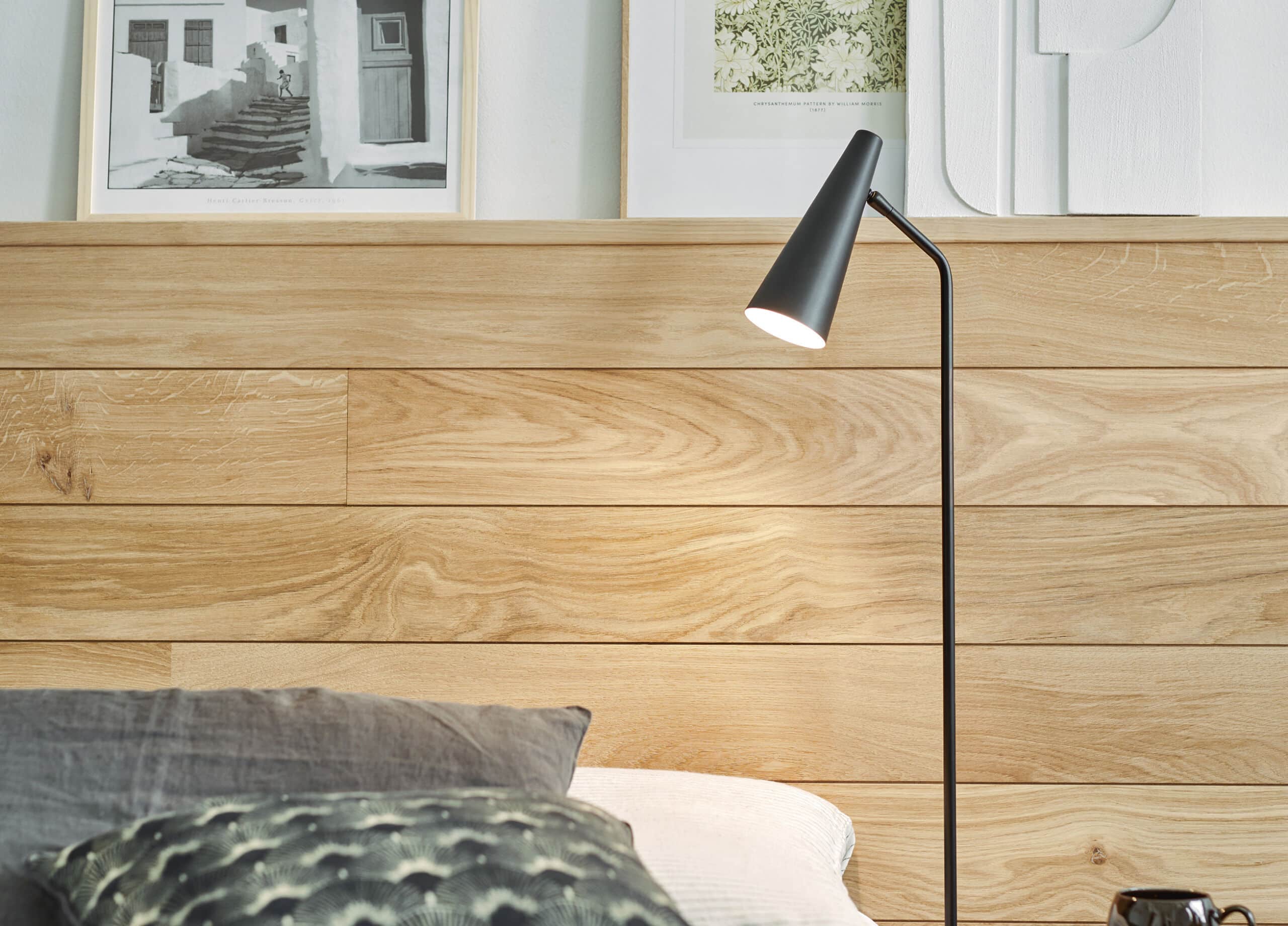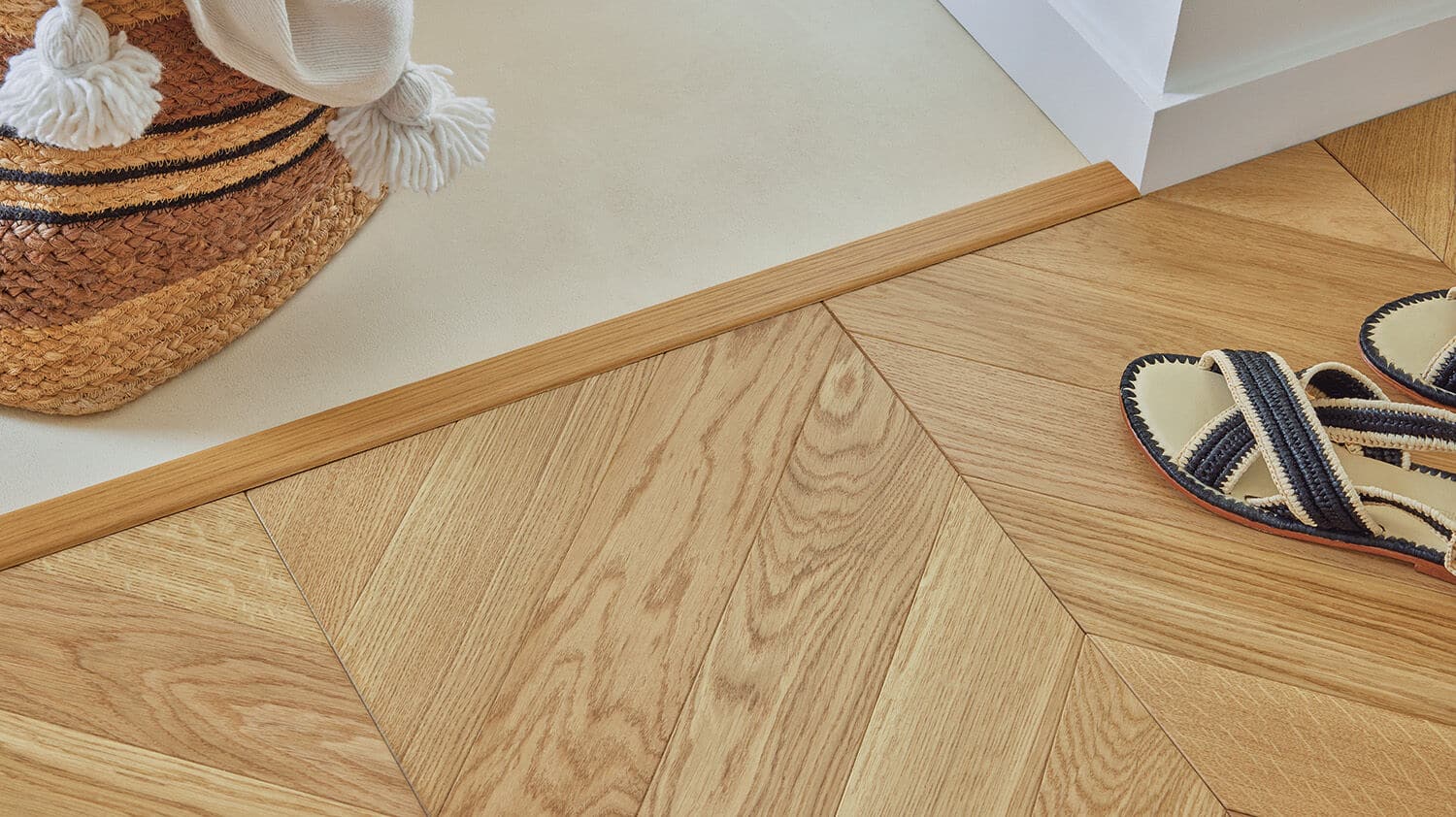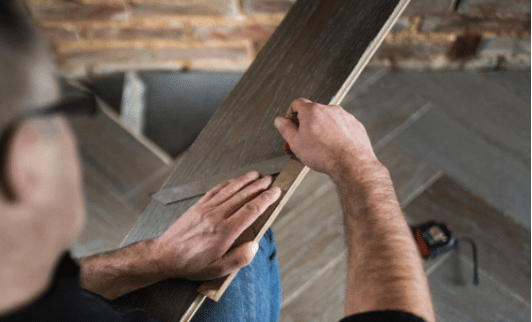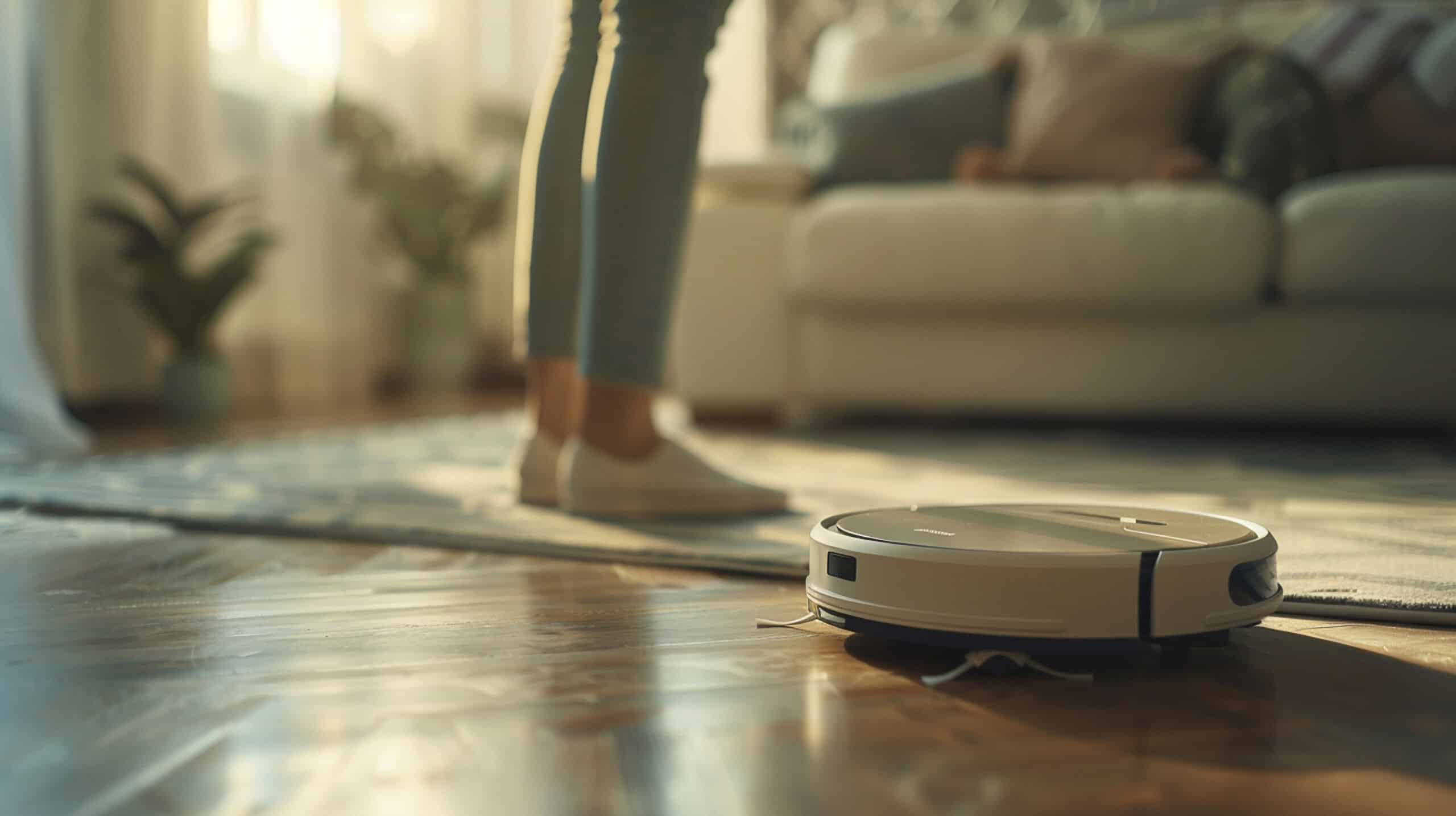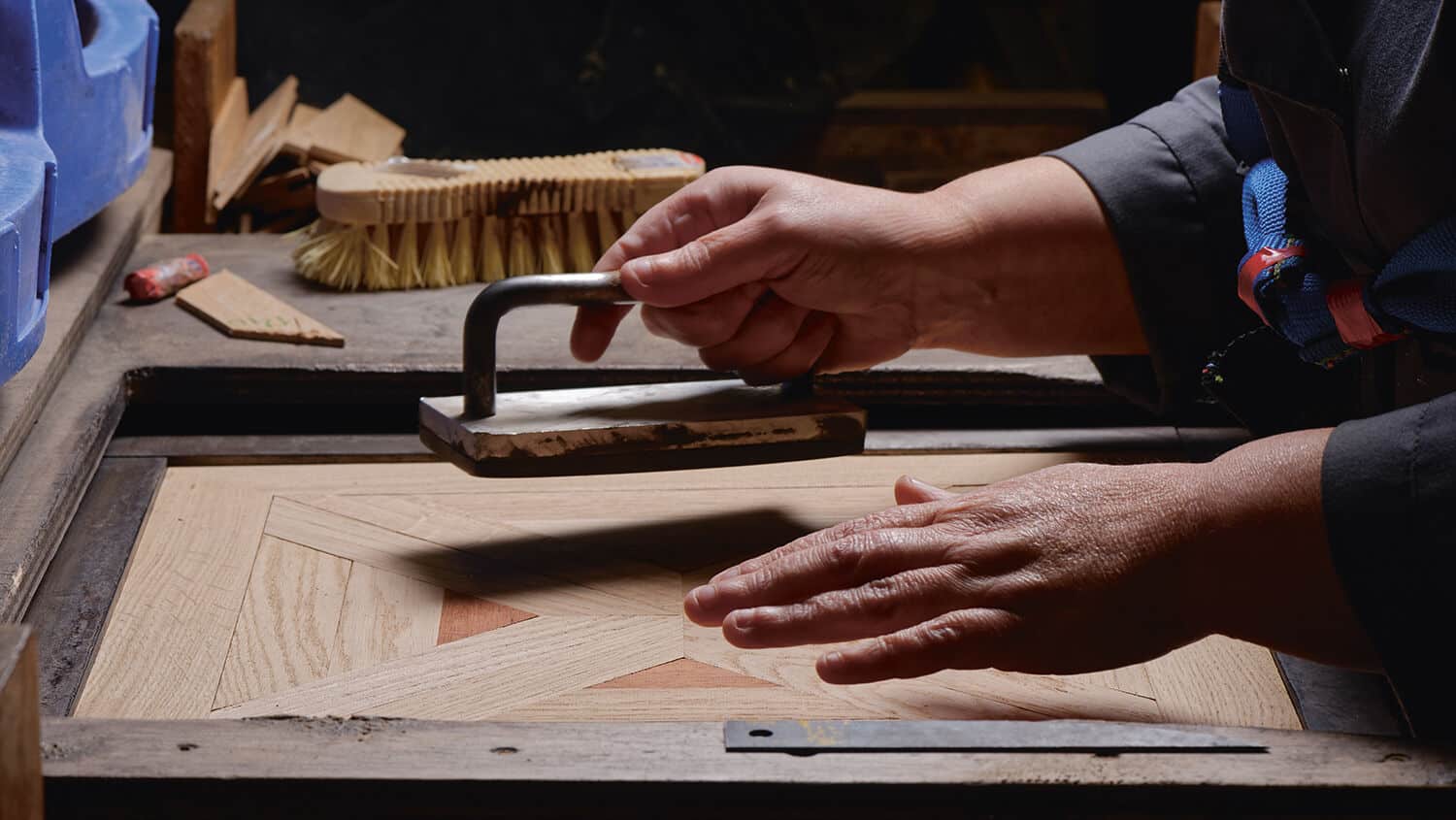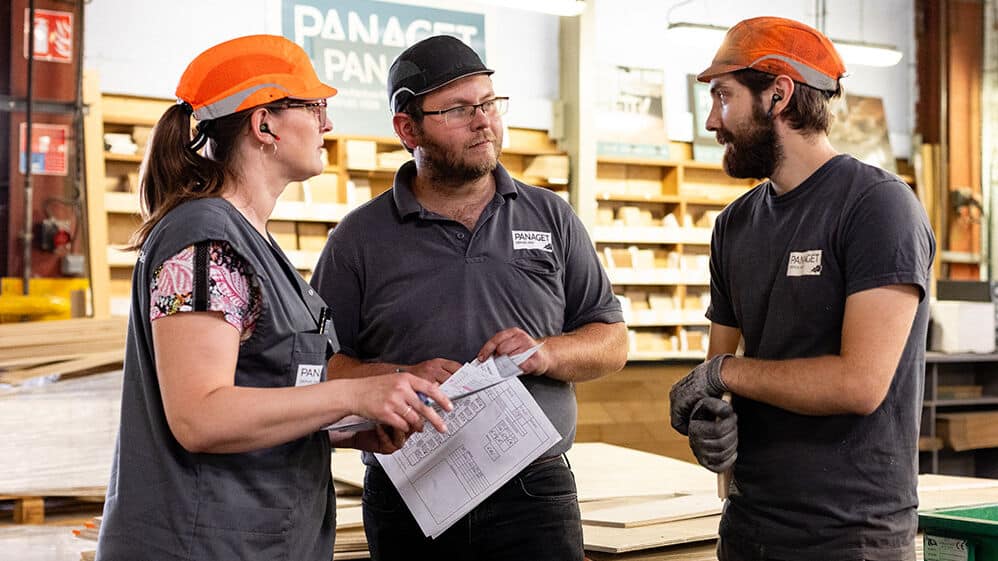Installing underlay for your wood floor
Before installing your wood floor, don’t forget a crucial step: laying underlay beneath the wood floor. It’s essential for floating installations and provides good sound insulation for your room.
Why install underlay under your wood floor?
Underlay for wood floors primarily serves to separate your wood floor from the subfloor! Proper underlay installation ensures a longer lifespan for your wood floor and more comfort for all occupants of the house.
Moisture barrier film to protect your wood floor
Moisture seeping into your wood floor can be disastrous… That’s why a moisture barrier film is the first recommended underlay. It’s a minimum 150-micron polyethylene film. Moreover, its quick and easy installation protects you from the unpleasant surprise of a swollen or warped wood floor!
Sound insulation for your wood floor
The second underlay to install is also essential to ensure maximum comfort. It can provide sound insulation. Investing in good underlay helps prevent noise transmission from one floor to another, which is especially crucial in residential buildings.
If you’re looking for underlay for your wood floor, check out our advice on ‘What is the best underlay for a floating wood floor?‘.
Steps for installing wood floor underlay
Installing wood flooring underlay is straightforward! With a little patience and precision, your wood floor will gain durability and comfort!
Preparing your room before installation
Most often, you’ll find your underlay in roll form. To install it, simply unroll the roll onto the floor, parallel to the direction of the wood floor planks, and let it rise against the wall. It’s also advisable to go a bit wider, as it’s better to have slightly higher underlay than not enough. Plus, you can always trim the excess underlay after fully installing your wood floor.
Once your underlay roll strips are positioned edge to edge, apply aluminum tape to join your underlay.
Finally, your underlay may come in sheet or tile form. In this case, simply assemble or lay them edge to edge with a possible expansion gap between each tile.
Special cuts
Not all rooms are without obstacles: pipes, doorways, corners… For a perfect underlay installation, use a contour gauge. With this tool, you can easily trace obstacles on your underlay and make appropriate cuts!
Now that your underlay is installed, all that’s left is to install your wood floor! Don’t wait any longer and discover our comprehensive guide to installing a floating wood floor!
For more information, feel free to contact us!
Find all our underlays here :

